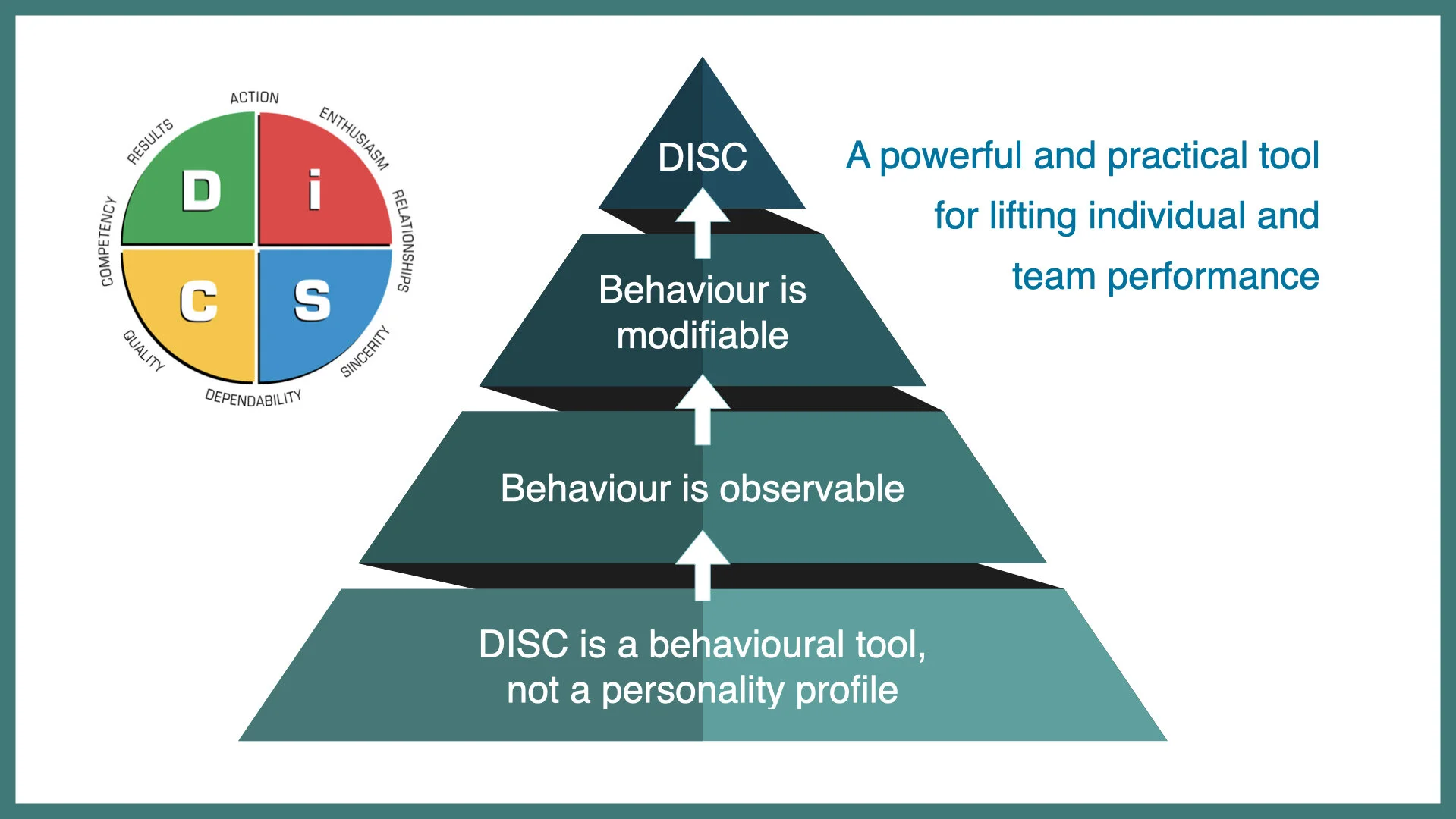What’s So Great About DISC?
What is DISC?
DISC is a workplace behaviour profiling tool. It assesses and describes how people prefer to behave at work. It does not assess our intelligence, feelings, skills or anything other than our behaviour.
What’s the difference between personality and behaviour?
Personality can be defined as ‘individual differences in characteristic patterns of thinking, feeling and behaving’.
Our personality traits do not tend to change much over time. Personality profiles are interesting but not easily applied in the workplace because it’s much easier to behave differently than to change our beliefs.
Behaviour is, of course, linked to personality. But it can be focused on without looking deeper into feelings, thoughts etc. Behaviour is what we actually do and how we do it. We all have ways we prefer to do things, from buttering toast to how we conduct ourselves in meetings.
So what’s so great about DISC?
Behaviour is a powerful and accessible way to look at how people work for two reasons: behaviour is observable and it is modifiable.
The value of being observable is often overlooked when we focus on why people do things. Behaviour is the interface between people and their worlds. Whatever else is going on beneath the surface, it is our behaviour that other people experience.
At work, we can successfully focus on behaviours without needing to try to understand and work out how to cater to motivations and triggers buried in personality.
The second good thing about DISC builds on the first: behaviour is modifiable. We can change our behaviour. By focusing on behaviour, not the complex space of personality, change is more achievable.
Some behaviours we do find very difficult to change and may need deeper analysis and thought through the likes of personality profiling and psychological consideration. But many workplace behaviours are surprisingly easy to change. They are not so much deeply held needs as default or natural ways of doing things that have evolved over time. if we see value in changing them we are likely to do so.
The result of using on behaviours, that are both observable and modifiable, is that DISC is a highly practical tool, relatively easily used in the workplace. Significant progress in individual and team performance can be achieved by focusing on behaviour … and using DISC as the tool to do so.
For tips on how to use DISC in your team see 5 Ways a Leader Can Use DISC.
Learn about the Archetype DISC Workshop
You May Like To Know More About Archetype Team Development Services
Learn about the differences between DISC and Clifton Strengths


